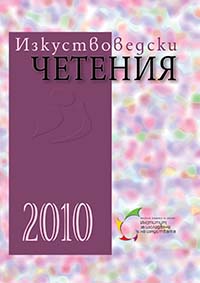Модерност, театрална режисура, социализъм и след това
Modernity, theatre directing, socialism and after
Author(s): Joanna Spassova-DikovaSubject(s): Fine Arts / Performing Arts
Published by: Институт за изследване на изкуствата, Българска академия на науките
Summary/Abstract: The proposed text studies the relationship between the political and the aesthetic ideas of modernity, theatre directing as a practice from the middle of the 19th, that reached its zenith in the 20th century and socialism as a modern political and aesthetic project of the 20th century. In focus are the four greatest directors, who have developed theatre systems: Stanislavski and Meyerhold (in Russia and the Soviet Union during the first four decades of the 20th century), Brecht (in pre-war Germany and later in East Germany after the Second World War between 20’s and 50’s of the 20th century), Grotowski (in socialist Poland in the and 60’s and 70’s of 20th century). The phenomena – theatre directing and socialism – both as late offsprings of the Enlightenment, have several common characteristics: they are aimed at building a new world, which is organized under strict rules within a given system, where the people (actors) are the perfect Über-marionettes (Gordon Craig); efforts are made to create a new universal language; there are attempts for changing, ruling and manipulating the mass consciousness. Also few issues related to the development and the new challenges posed to theatre directing in Bulgaria after the democratic changes in the 90’s of the 20th century and the first decade of 21st century are discussed.
Journal: Изкуствоведски четения
- Issue Year: 2010
- Issue No: 6
- Page Range: 270-277
- Page Count: 8
- Language: Bulgarian
- Content File-PDF

